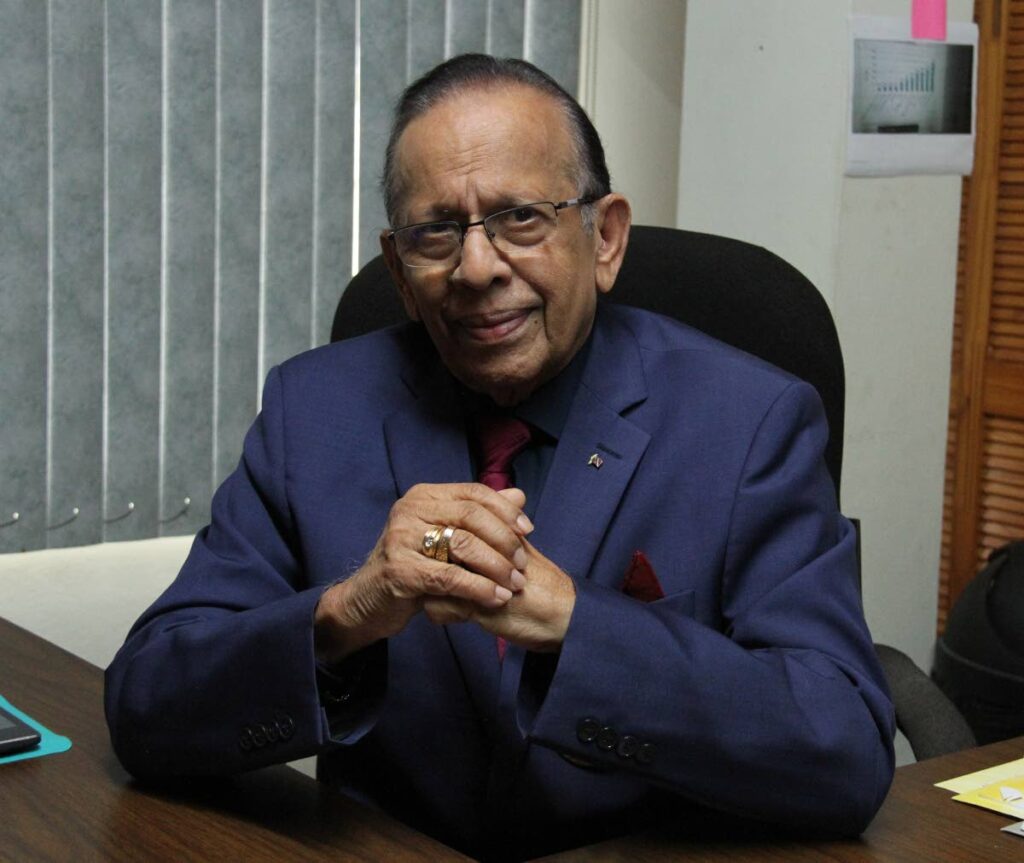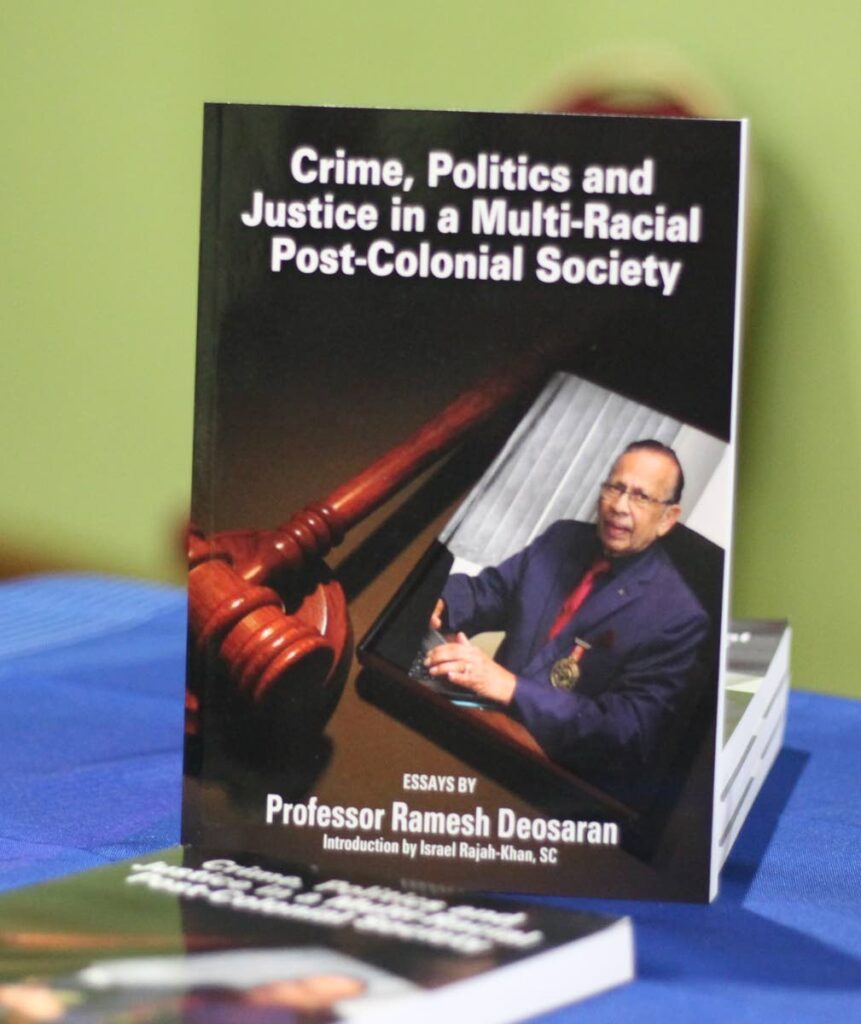Deosaran’ essays, grim reminder that criminal injustice erodes society
[ad_1]
Newsday

– Photo by Angelo Marcelle
Israel Rajah-Khan, SC
As a practitioner in criminal justice for over 40 years, I find the essays in the book Crime, Politics and Justice in a Multi-Racial Society, by Prof emeritus Ramesh Deosaran, not only fascinating to read but a grim reminder of how crime and injustice have been eroding civil society over the years and how serious the challenges remain.
His essays tell us not only how our public safety institutions have failed but also how to fix them.
He began these essays from 2010 with the troubling issue of lawlessness and how infectious this civic disease has grown over the years into feeding more and more serious crimes. Ironically, and sadly, he ended these essays by again painting a troubling portrait of lawlessness and its deleterious effects in 2020.
Things, he wrote, have got worse. From squatting, pollution, chaotic vending, PH taxis, judicial inefficiency to diminished trust in the police, corruption, educational deficits, health services.
True, he sounds the alarm, but he has also provided ideas and policies, many of them research-based, to improve things. Only those who have ears to hear will listen. He graciously noted the useful contributions of other professionals, for example, the 1992 Dennis Gurley Committee Report to help reduce trial delays, and the 1994 Ellis Clarke Commission to improve the administration of justice, of which Deosaran himself was also a member.
In discussing the “culture of lawlessness,” he takes a broad, criminogenic view of the phenomenon.
He says: “Let me say that vending, different from squatting, is a form of informal enterprise. If you look around the country, you will see ‘the little people’ all overselling this, that and the other. In other words, micro-entrepreneurship and self-help enterprises are bubbling all around us. Therefore, the authorities should construct appropriate facilities and traffic signs to encourage vending in a sanitary, orderly, lawful and even in a more profitable way. Lawlessness seizes unattended space. It starts in drops, a little here and a little there, but soon building into a widespread habit because it brings visible benefits.”
These essays contain repeated proposals to improve the police service, the Police Service Commission, the education system, Parliament, the criminal justice system, the prisons, road safety, even trial by jury. Deosaran continues the analysis from 2010 into 2020 without appearing hopeless but maintaining optimism and civic vigilance to help keep our basic freedoms and democracy alive.
Some of his essays boldly challenge the weaknesses of the political party system by its continued practise of embedded favouritism over merit, by the inequitable distribution of state resources, etc. The tension between political parties seems inevitable, he argues, since political parties survive on patronage and division.

These concerns are revealed in his essays on democracy, the 1990 Jamaat al Muslimeen insurrection and the rights of a free press.
As I read his essays on gangs, school delinquency, parenting, state corruption, the culture of lawlessness, white-collar and blue-collar crime and even on gossip and rumour, I remain very impressed by his intellectual versatility in drawing research and insights from social psychology, sociology, politics and criminology to produce so eloquently these essays.
He explains how gangs are formed, the risk factors and how to prevent their formation. He explains, sometimes humorously, the rise of electronic guerrillas. Several essays on trial by jury challenge those who advocate for its complete abolition. He accepts some reform is necessary but insists that the main objectives of the jury system should be maintained by improved treatment of juries.
As a member of several international professional bodies and a regular speaker at public safety conferences, including his active role in the Association of Caribbean Commissioners of Police, he has well-developed skills in transforming his academic research into public policy and training programmes. In particular, his essays indicate that he has expert knowledge of community policing and its supplementary role to law enforcement.
As an associate member of the International Association of Chiefs of Police, Deosaran has excelled as a cherished public intellectual. These essays, so attractively and independently written, help remove a lot of the self-serving postures and interests that often misguide public opinion. He has politely removed many masks with his intellectual honesty and passion for the underdog.
The country should be proud and grateful for the contributions of this tireless and brilliant professor. These essays could be profitably used by tourists, researchers, teachers, students, members of the protective services, policy-makers, politicians and community activists.
[ad_2]
Source link